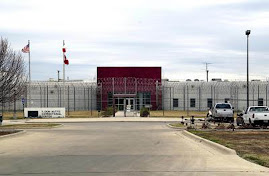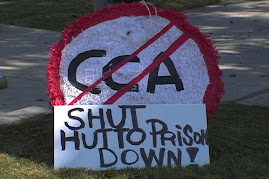WHEN HOME IS PRISON
Aug 13th 2009
Slow improvements in the processing of immigrants
...
[Janet Napolitano's] department has already made changes. The administration has scaled back the workplace raids that were so controversial during the Bush
years. It is opting instead to focus on auditing employers and
expanding E-Verify, an electronic system that lets employers check the
immigration status of potential employees.
But the biggest shift concerns family detention. In 2006 George Bush
said he would end a policy known as "catch and release", whereby
illegal immigrants were allowed to go free after being caught because
so many of them failed to turn up for subsequent court proceedings. But
detaining children and families proved more delicate than holding lone
adults. Later that year, Immigration and Customs Enforcement (ICE)
opened a facility specifically for families in Taylor, a small town
north of Austin.
The T. Don Hutto Family Residential Centre was formerly a
medium-security prison. In its new incarnation it is still run by the
Corrections Corporation of America, a private prison company. And
inside, Hutto used to be just like a jail. Barbara Hines, director of
the Immigration Clinic at the University of Texas's law school, says
that she was shocked when she started visiting: children were wearing
prison uniforms and the parents were depressed and desperate. Everyone
was cooped up in cells for most of the day, and the children had only
an hour or so of lessons.
In March 2007 the Immigration Clinic and the American Civil Liberties
Union sued Michael Chertoff, then the head of the Department of
Homeland Security, over the conditions at Hutto. In August that year
the parties settled, with the government agreeing to a list of reforms.
That agreement was set to expire later this month, but on August 6th
ICE announced an overhaul of America's approach to detention. As
immediate steps, the government would put monitors in many of the adult
facilities, and immediately stop detaining families at Hutto.
The announcement raises questions. For one thing, it is not clear
where the families are going to go. ICE said that it would move them to
the Berks Family Residential Centre in Pennsylvania, but that facility
is full. And although Berks is somewhat nicer than Hutto,
immigrants'-rights groups are still sceptical about keeping children in
detention at all.
Planning large-scale reform next year may still be too ambitious: it is
an election year, which makes politicians even more skittish about
controversy. But some reform advocates are more optimistic: at least,
reckons Charles Foster, an immigration lawyer in Houston, immigration
reform is still on the agenda.
Sunday, August 16, 2009
The Economist: When Home Is Prison
The venerable neoliberal rag, the Economist, covered changes in US immigration detention policy, as well, though it mostly summarizes previous reports/posts. Correction, however: Napolitano has NOT scaled by immigration enforcement compared to Chertoff. Instead, she has expanded the 287(g) program, which allows local police to enforce immigration law, to a host of new cities, many of them in Texas. 287(g) has been discredited as institutionalized racial profiling.








